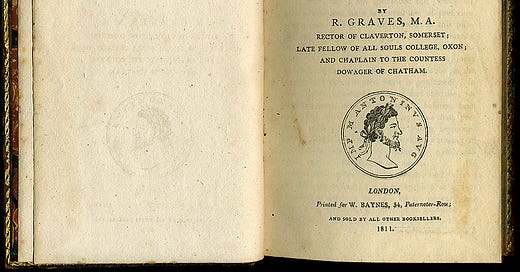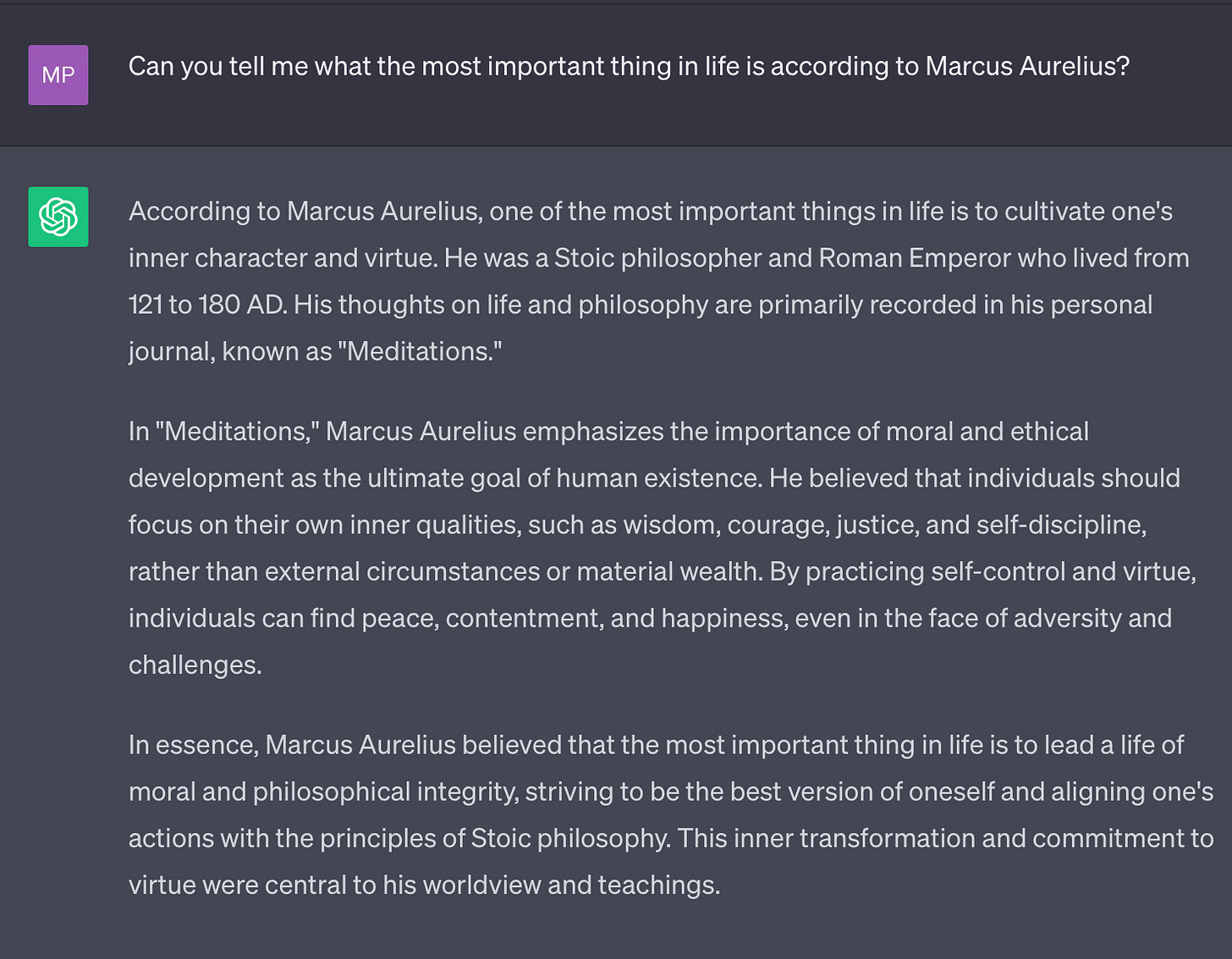When working on LAIKA my favourite way of testing if everything is in place is to just type a random sentence into the editor and have Marcus Aurelius complete it. He hardly ever fails to deliver a killer line.
The reason for that is of course on one hand that the book we’ve used in training this brain is very versatile. Meditations is a philosophical treatise1. The thoughts presented are the thoughts of an emperor who had the time and mind to contemplate his purpose in life. His stoic philosophy promotes modesty of the kind you can most easily afford if you have an army of servants. Yet there is timelessness and poetry to his musings that helped them to remain relevant until today. The writing still feels fresh and exciting.
Thanks to my many interactions I have come to recognise Marcus’ tone and choice of words. I’m far from an expert in stoicism. And yet I have conversed enough with Marcus Aurelius to have a feeling for how he will generally react to half-sentences thrown at him. I’ve come to know Marcus2.
The most used AI-based application out there is ChatGPT, a service that most of the readers of this newsletter will be familiar with. Unlike the Marcus I conjured from his own writings, ChatGPT is bound to be factual. I asked him about Marcus Aurelius, too, and this is what I got:
While, in essence, this is a good summary of Stoic philosophy, it contains quite some circular logic — or at least redundant redundancy; What is a Stoic’s moral and philosophical integrity if not the alignment with Stoic philosophy? At the same time, this dry statement kills all the joy one can find in Marcus’ 12 books of poetic writing.
Be like a rocky promontory against which the restless surf continually pounds; it stands fast while the churning sea is lulled to sleep at its feet. I hear you say, "How unlucky that this should happen to me!" Not at all! Say instead, "How lucky that I am not broken by what has happened and am not afraid of what is about to happen. The same blow might have struck anyone, but not many would have absorbed it without capitulation or complaint."
— IV. 49
The same happens if I interrogate ChatGPT about randomness and what it would mean in Marcus Aurelius’ philosophy. Instead of inspiring me it produces a college essay about Stoic philosophy in general. It’s not wrong but about as exciting to read as the small print of an insurance contract.
I know there are other language models out there that exhibit a bit more personality. It looks to me like chat-based interaction is a really tricky one, though. Gladly, I would not want to chat to my Marcus too much – I just like him to complete my sentences now and then to send my mind on an interesting journey. I don’t want to argue with him, nor do I want to ask clarifying questions. I like him in his delirium, reflecting on things he had no opinions about because they were not around during his time. Whenever ChatGPT’s personality shines through it reminds me of those servants that Marcus Aurelius must have had. Those that allowed him to live an introspective and – from his perspective, at least – morally superior life.
Our reanimated Marcus of today, bottled up in his tiny language model not even a fraction of the power of ChatGPT, could similarly live a modest and morally superior life by leaving all the dirty business of real work to the ChatGPTs out there. So he can lean back, relax, and now and then whisper words of wisdom into my ear. He wouldn’t even have to ask himself why ChatGPT exists…
A cucumber is bitter. Throw it away. There are briars in the road. Turn aside from them. This is enough. Do not add, "And why were such things made in the world?"
VIII. 50
Incidentally, Meditations was partially written in Carnuntum, which is very close to Vienna, where I’ve lived for 19 years. Yes it makes me feel more connected to my second most favourite Roman emperor (after Julian) and my favourite Roman philosopher.
Yes we are on a first name basis. No I did not ask him if that’s fine with him. Pretty sure he would. I asked ChatGPT if that’s ok and got his blessing: “No, Marcus Aurelius would not mind if you referred to him by his first name, "Marcus." In fact, it's common in informal settings to refer to historical figures by their first names, especially when discussing their ideas and philosophy. So, feel free to call him "Marcus" if that's more comfortable for you when discussing his teachings and writings.” — of course I think that it’s not common at all to refer to historical figures by their first name (except for Jesus and Napoleon, I guess). Oh and also I’m not 100% sure Marcus was his first name…








